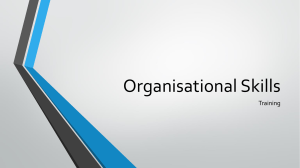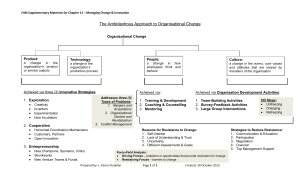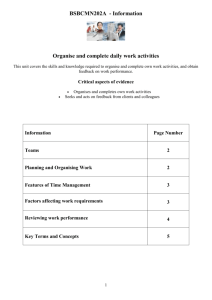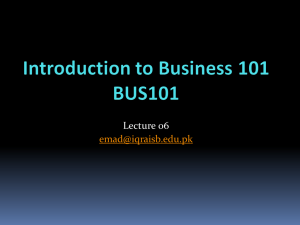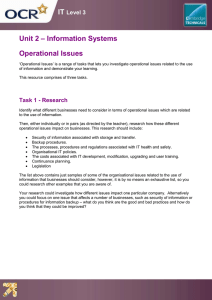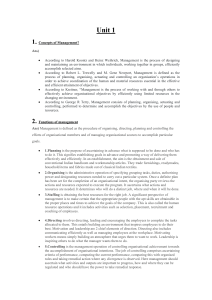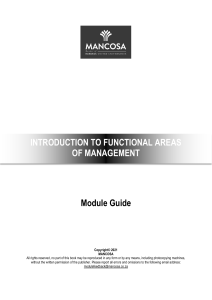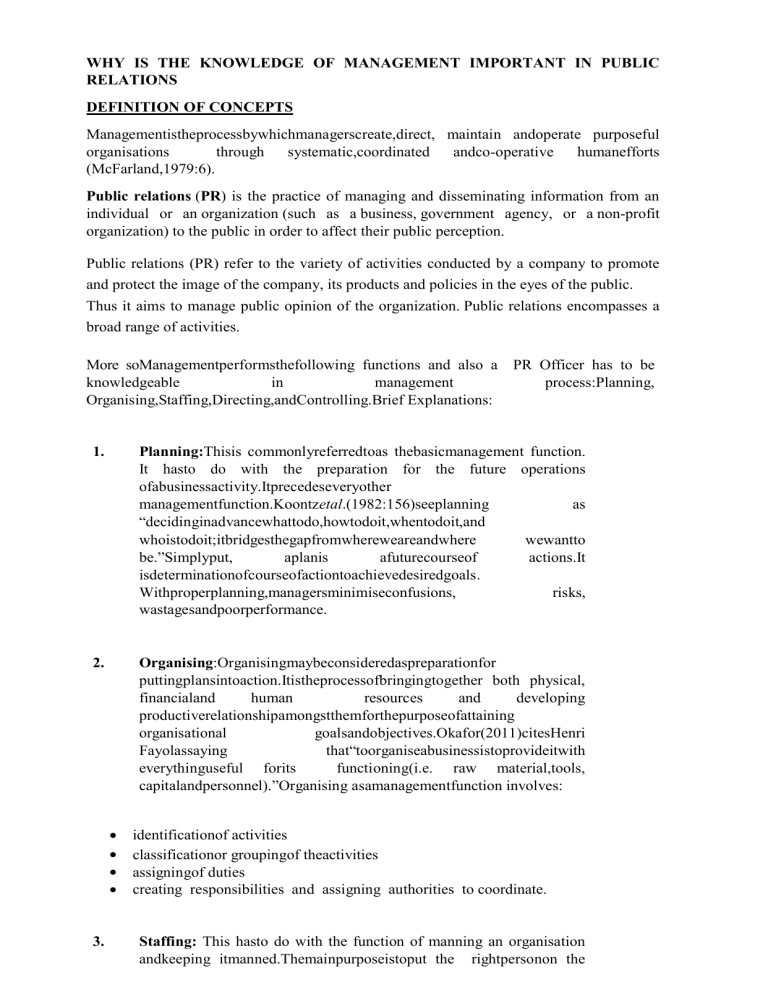
WHY IS THE KNOWLEDGE OF MANAGEMENT IMPORTANT IN PUBLIC RELATIONS DEFINITION OF CONCEPTS Managementistheprocessbywhichmanagerscreate,direct, maintain andoperate purposeful organisations through systematic,coordinated andco-operative humanefforts (McFarland,1979:6). Public relations (PR) is the practice of managing and disseminating information from an individual or an organization (such as a business, government agency, or a non-profit organization) to the public in order to affect their public perception. Public relations (PR) refer to the variety of activities conducted by a company to promote and protect the image of the company, its products and policies in the eyes of the public. Thus it aims to manage public opinion of the organization. Public relations encompasses a broad range of activities. More soManagementperformsthefollowing functions and also a PR Officer has to be knowledgeable in management process:Planning, Organising,Staffing,Directing,andControlling.Brief Explanations: 1. Planning:Thisis commonlyreferredtoas thebasicmanagement function. It hasto do with the preparation for the future operations ofabusinessactivity.Itprecedeseveryother managementfunction.Koontzetal.(1982:156)seeplanning as “decidinginadvancewhattodo,howtodoit,whentodoit,and whoistodoit;itbridgesthegapfromwhereweareandwhere wewantto be.”Simplyput, aplanis afuturecourseof actions.It isdeterminationofcourseofactiontoachievedesiredgoals. Withproperplanning,managersminimiseconfusions, risks, wastagesandpoorperformance. 2. Organising:Organisingmaybeconsideredaspreparationfor puttingplansintoaction.Itistheprocessofbringingtogether both physical, financialand human resources and developing productiverelationshipamongstthemforthepurposeofattaining organisational goalsandobjectives.Okafor(2011)citesHenri Fayolassaying that“toorganiseabusinessistoprovideitwith everythinguseful forits functioning(i.e. raw material,tools, capitalandpersonnel).”Organising asamanagementfunction involves: 3. identificationof activities classificationor groupingof theactivities assigningof duties creating responsibilities and assigning authorities to coordinate. Staffing: This hasto do with the function of manning an organisation andkeeping itmanned.Themainpurposeistoput the rightpersonon the rightjob at the righttime. It entails searching, selecting, recruiting, replacing, training and developing ofstaff.Italsoincludesremunerations,performance appraisal,promoting,transferringandretiringof staff. 4. Directing:Thisistheinterpersonalaspectofmanagementwhich hastodowithinfluencing,guiding,supervising, instructing and motivating subordinates forthepurposeofachieving organisational goals.Foramanagertodirectwell,he/shemust ensure thatsubordinates understand clearly what they are expected todoineachsituation.Thisimpliesthatmanagement mustgiveprecise ordersandspecifyclearly howandwhen,who shoulddo what. 5. Controlling:Thisreferstomeasurementofcurrentperformance andcorrectionof deviations(ifany)toensureachievementof organisationalgoals.Thepurposeofcontrolistoensurethat everythingworkin accordancewiththeplannedstandards. Controllinghasthesesteps: establishmentof organisationalstandardof performance measurementof theactualperformance comparing theactual performance with the organisational standardto determineif thereis anydeviation correctingdeviations,if any. A PR Officer must be familiar and efficient in some of these skills in Management. These includes: Managerial skillsareotherwisereferredtoeffectiveleadershipskills. Theyareleadershipskillsthatsuccessfully encourageteammembersto dotheirjobeffectively.Theyincludeamongothers: 1. Strategicthinking:Thisistheskillofabilitytoscrutiniseand evaluatesituationsandcomeoutwithadevelopmentplanforthebettermentof theorganisation,bothinthepresentandinthe future. 2. Effective communicationskill: This skill enables leadersto efficiently communicate organisational plans to members for theircomprehension andtoinspireandmotivatethemtogreater performance. 3. Resilience:Thismeansbeingflexible.Itmeanstheabilityto knowhowtohandledifferentproblems;knowing thekindof solutiontoprovidetoeveryproblem inordertoachieve organisationalgoal. 4. Planningskill:Planningisanother importantmanagerial skill.It istheabilitytoplanaheadoftimetoachieve the aimsofthe organisation.A managerneedsto havevisionforhisorganisation foritto succeedin collaborationof theeffortsof othermembers. 5. Technicalskills:Thisimpliesthat managersshouldnotonly havetheoreticalknowledgeofthejobbutmusthavethepractical skills;thiswouldenablethem leadand directbyexample.This skillisveryimportantinmediaorganisations especiallythe broadcast.Amanager oftelevision orradio stationshouldknow thetechnical aspectofthejob.Heshouldknowhowtooperate studioandcontrolroomequipment,etc. 6. PublicRelationsskills:Thisistheabilitytorelateeffectively withbothhisstaffandtheexternalpublic. 7. Administrative skills: This has to do with having good knowledge andskillstomanagebothhumanandmaterial resources. It entails the abilityto coordinate and control effectivelyandefficiently. 8. Othermanagerialskillsincludetheabilitytolisten,tolearn,to predictwhatwouldworkandwhatwillnotwork,etc. IN CONCLUSION Public Relations officers require management skills and knowledge, management is very important in every Organisation. Managementperformsveryimportantfunctionsineveryorganisation. Also,managementsharescertaincharacteristicswhichmakesitunique Thesefunctionsand characteristicsare applicablein virtuallyevery organisation includingthemediawhichisourmajorconcerninthis course. REFERENCE Koontz,H.&O’Donnel(1982).Management.Auckland:McGrawHill. “ManagementStudy Guide2008-2012.”www.managementguide.com. Retrieved25/08/2012. discern,to
